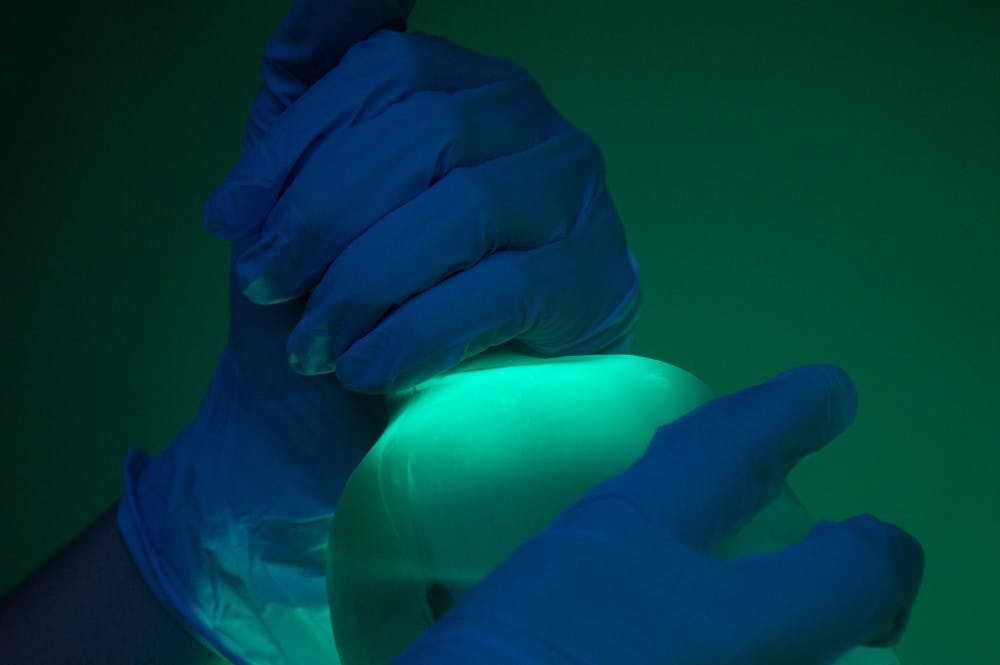Folks from UNC and Duke University aren’t always at odds. In September, two scientists from UNC and Duke University teamed up to pitch their research idea to the Ian’s Friends Foundation. They won funding and support from the organization, and are starting their project for a new treatment of childhood brain tumors.
Shawn Hingtgen is an associate professor in the UNC Eshelman School of Pharmacy's Division of Pharmacoengineering and Molecular Pharmaceutics, and his research partner is Dr. Scott Floyd, a radiation oncologist at Duke University Hospital.
Hingtgen and Floyd are beginning research on a technique to treat tumors where part of a child’s tumor is removed and kept alive in a lab for testing.
“What we’re trying to design is a platform that actually is able to take a biopsy, so take a child’s tumor, to actually provide functional readouts,” Hingtgen said. “So, treat it with drugs and actually be able to inform clinicians on what drugs will work for each patient, but in a very rapid manner.”
Ian’s Friends Foundation is an Atlanta-based organization founded by Phil and Cheryl Yagoda in 2006 after their son, Ian, was diagnosed with an inoperable brain tumor. According to IFF, pediatric brain tumors are the leading cause of cancer-related deaths among children.
“It’s a prolific disease and guys like Shawn are going to be the ones to find an answer,” Phil Yagoda said.
In 2017, IFF organized its first WhatIFF Symposium, where doctors pitched their research proposals in a "Shark Tank-"style competition. The top three proposals were guaranteed funding and support from IFF. The doctors asked each other specific questions about the proposals, and presenters had to defend their research.
“From a scientific standpoint, it’s amazing,” Hingtgen said. “Just hearing the science, you get to hear so much, but also in short, digestible snippets. It’s also really cool because the other scientists weigh in right then, so you can also get a feel for the pros and cons of it all right there, too.”
Perhaps the most unique of all, the symposium’s “shark” judges are the doctors: competitors choose the winners amongst themselves.



